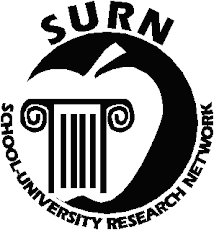- Looking at teacher effectiveness through multiple lenses including students’ academic growth, family/student feedback, observation data, and teacher attitudes and beliefs
- Improving the leadership and evaluation skills of instructional leaders to provide feedback to teachers as well as creating better evaluation tools and processes
- Approaching tenure as a milestone event that occurs after a review process as opposed to “time served” automatic occurrence
- Creating career pathways and pay-for-performance. For example, one of the sites spends $30 million dollars a year on stipends for advanced degrees which has limited impact on teacher effectiveness, so those funds are going to be reallocated to criteria linked to student outcomes.
- Recruiting and placing highly effective teachers in specific classrooms
The issue brief provides food for thought of issues, processes, and stakeholder groups to involve when an emphasis is placed on enhancing teacher effectiveness. The Foundation is a strong supporter of education reform and certainly everyone can benefit from the lessons learned and published from the work the Foundation funds. While these ten sites are fortunate to have funding and resources of the Foundation (to the tune of 20-46 million dollars annually), there are numerous school districts around the country that have made teacher effectiveness a focus.
As a case in point, SURN staffer Jenny Hindman consulted with a school district in Wisconsin that engaged in a professional development centered on questions such as What makes an effective teacher effective? and How can we support teacher effectiveness? In that school district, teachers and administrators created a teacher evaluation system built on a foundation of effective teacher research and employee performance appraisal best practices that also met state code for evaluation. Their evaluation system includes tools and processes such as goal setting for student achievement, observation, and stakeholder surveys. During hiring process, the interview questions are distributed across the multiple areas of teacher effectiveness using the Teacher Quality Index (TQI) as a tool. TQI is based on teacher effectiveness literature and interviewing best practices. These are just a few examples of how a school district adjusted its processes to focus on teacher effectiveness. This initiative was supported from the superintendent’s office to the teacher’s actions and all points in between because emphasizing teacher effectiveness was good for student learning.
The issue brief discusses capacity building of school leaders for providing better feedback for evaluation. The School Leadership Institute is currently engaged in a project called the SURN Leadership for Effective Teaching led by Jan Rozzelle, Mike DiPaola, and Margie Mason that provides 28 principals and assistant principals with tools and support to collect classroom-based data during observations and engage teachers in dialogue to provide formative feedback.





Free video 우리카지노 poker and video poker for real cash are some of the hottest video games to play on-line
ReplyDelete